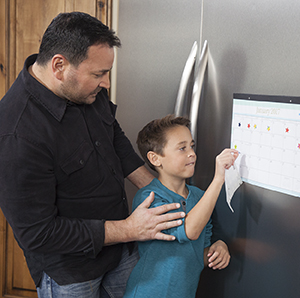Coping with Bedwetting
Coping with Bedwetting

Tips that may help
Get your child involved. Encourage your child to take responsibility for changing a wet bed during the night.
Put up a calendar or chart and give your child a star or sticker for nights that he or she doesn’t wet the bed.
Put night lights in the bedroom, hallway, and bathroom. These may help your child feel safer walking to the bathroom.
Keep a plastic bag or laundry basket in the room to hold wet sheets and pajamas.
Protect the mattress with a waterproof cover. Put an absorbent pad on the bed or keep extra sheets or dry towels in the room. If the child wets during the night, he or she can get up and remove the pad, change the sheets, or put a dry towel over the wet spot.
Make overnight trips as easy as possible. If your child goes to a slumber party, hide a disposable diaper in the bottom of the sleeping bag. This can be slipped on under his or her pajamas. Also ask the doctor about medicines that may help control bedwetting for a night or two.
Keep in mind that waking your child up to use the bathroom may prevent a wet bed that night. But it won’t make your child outgrow the problem any faster.
Growing up
Children mature at different rates. Some kids don’t walk, talk, or grow as quickly as others. And some take longer to stop wetting the bed. This doesn’t mean something’s wrong. With your patience and understanding, your child can overcome bedwetting, without hurting his or her confidence or self-esteem.
Updated:
December 03, 2017
Reviewed By:
Greenstein, Marc, DO,Hanrahan, John, MD,Image reviewed by StayWell art team.